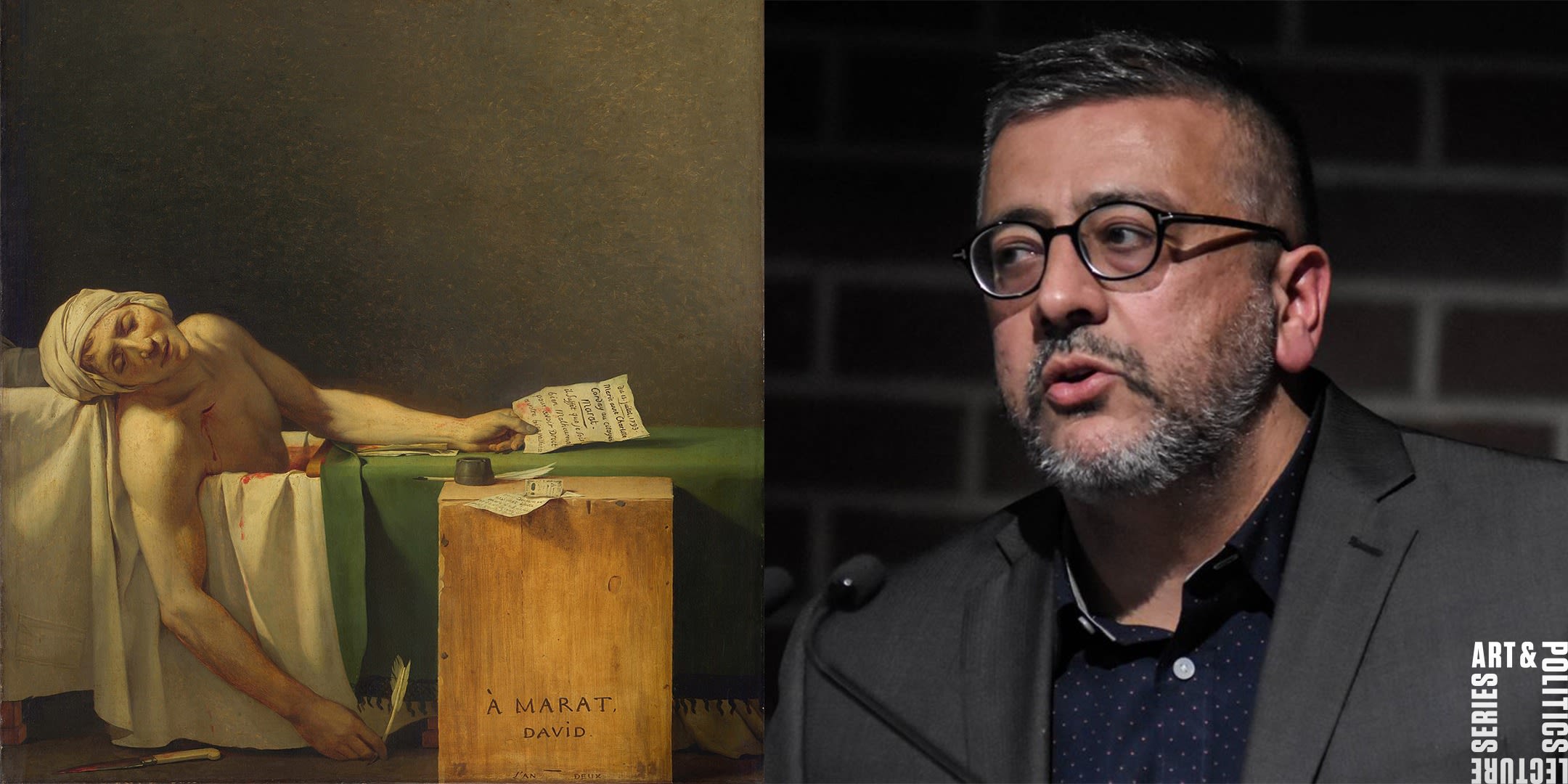Talk
Samir Gandesha: The Traumatic History of Political Theory

ONLINE
RSVP here to get a Zoom link“Leisure,” argued Thomas Hobbes, “is the mother of philosophy.” But is this really true? The proposition seems to contradict Hobbes′ own experience. His most famous book, Leviathan, in which he portrays life within the state of nature as “solitary, poor, nasty, brutish and short,” was far from being a product of leisure. Leviathan was written at the conclusion of the English Civil War (1642 – 1651) and was deeply shaped by the fear that Hobbes himself experienced during this tumultuous period of English history.
Hobbes even took direct aim at the quintessential philosophy born of leisure, which was, of course, that of Aristotle, which defines the good life as a life devoted to “quiet contemplation.” Yet even the aristocratic “pathos of distance” that apparently serves as a condition of possibility for such a philosophy is marked by a darker, unconscious and traumatic history, not unlike the events that so shook Hobbes: the profoundly traumatic trial and execution of Socrates. Socrates’s students sought, therefore, to make the world safe for philosophy by denigrating politics.
In this talk, Samir Gandesha discusses these and other scenes from a traumatic history of political theory. Ranging from Aristotle to Hobbes, Freud to Heidegger, Adorno to Kuhn, he traces how fears originating in these fateful encounters shaped—and limited—the political ideas of the modern age. RSVP here to receive a Zoom link.
Samir Gandesha is the director of the Institute of Humanities, Simon Fraser University, Vancouver. His most recent volume is Spectres of Fascism: Historical, Theoretical and International Perspectives. He specializes in modern European thought and culture, with a particular emphasis on the 19th and 20th centuries. His work has appeared in a wide range of journals including Political Theory, New German Critique, Constellations, Logos, Kant Studien, Philosophy and Social Criticism, The European Legacy, The European Journal of Social Theory, Discipline Filosofiche, Estudios Politicos, Zeitschrift für kritische Theorie, Radical Philosophy and Constelaciones: Revista de Teoria Critica. He is co-editor with Colin Campbell and Stefano Marino of Adorno and Popular Music: A Constellation of Perspectives (Mimesis, 2020), with Johan Hartle of Spell of Capital: Reification and Spectacle (University of Amsterdam Press, 2017) and Aesthetic Marx (Bloomsbury Press, 2017) and with Lars Rensmann of Arendt and Adorno: Political and Philosophical Investigations (Stanford, 2012). He regularly contributes to popular publications such as openDemocracy, The LA Review of Books, Canadian Dimension, The Vancouver Sun and The Globe and Mail.
About the Art & Politics Lecture Series
Humanity is living through an interlocking series of crises. It is difficult to say strongly enough how urgent the situation is. How do these conditions impact the arts? Does art have resources that might come to our aid in these serious times? What is to be done? In light of all there is to understand and to change, SVA’s Art & Politics Lecture Series, co-hosted by BFA Visual & Critical Studies and the Honors Program, invites activists, scholars, politicians, artists, critics, historians, curators and scientists to address, discuss and debate politics, art and the delicate filaments that tie them together.
Note: All events listed on sva.edu/events are in Eastern Time (ET).

